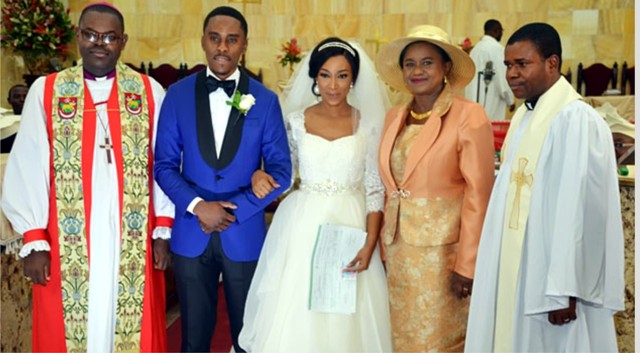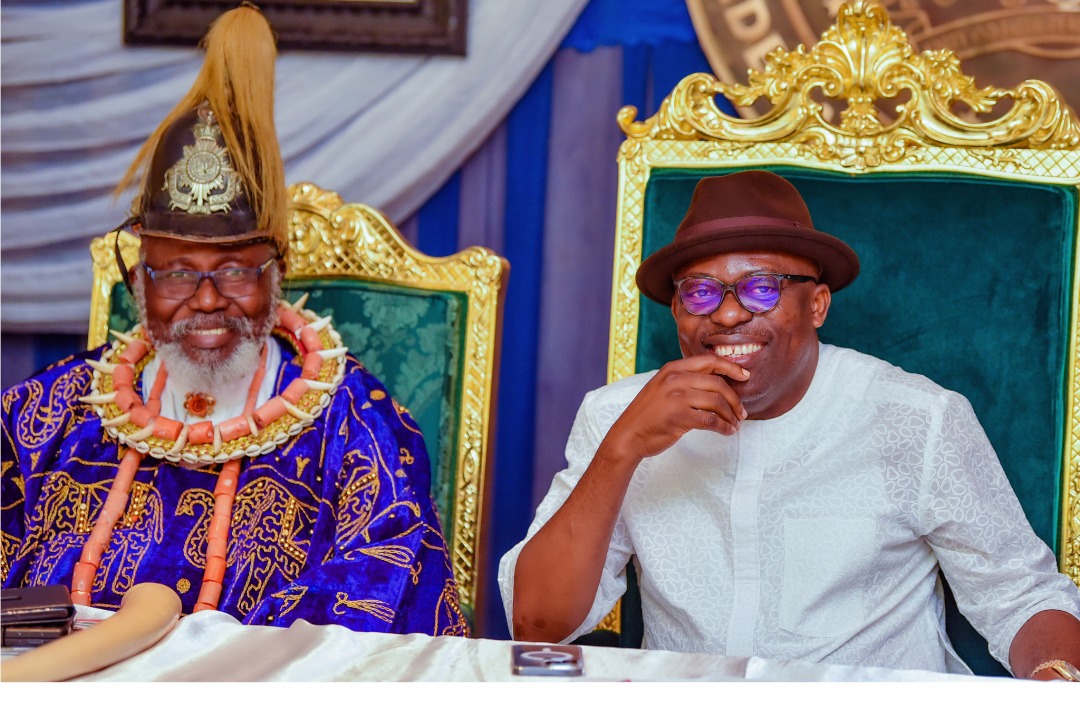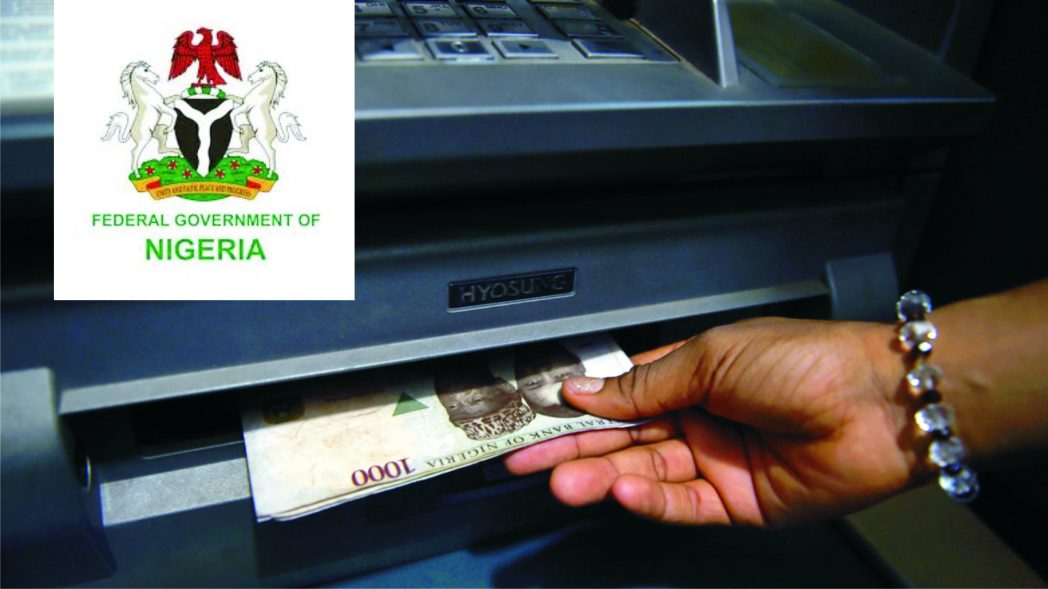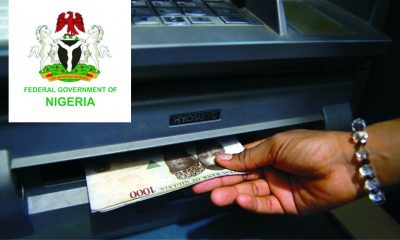Featured
Boroh Assures Ex-Agitators Of Empowerment

The Special Adviser to the President on Niger Delta/Coordinator of Presidential Amnesty Programme, Brig-Gen Paul Boroh (rtd) has again assured delegates undergoing training at the various centres across the country of their empowerment packages at the end the programmes.
Boroh reiterated that President Muhammadu Buhari was determined to ensure stability in the region through his socio-economic development agenda.
The amnesty boss, who was represented by the Head, Monitoring and Evaluation Unit, Mr. Bestman Probel at Songhai, Amukpe, Delta State, where 100 amnesty delegates are undergoing empowerment training in fishery and poultry, said agriculture will guarantee food security in the country.
Speaking through the Centre Director, Chief T. J. Okpidi, the Deputy General Manager of Songhai Delta, Mr. Ifowodo Rasmus, who also doubles as training manager, while commending the amnesty coordinator for his foresight in focusing attention on agriculture as a means of empowering the beneficiaries in the programme, described the current batch of 100 delegates at the farm as the best set so far in terms of conduct and attention to their studies.
“The trainees have been so wonderful, initially when I heard amnesty programme, I was apprehensive, but after working together, I observed that most of them have been refined and can work and integrate into the larger society properly. We have been handling amnesty delegates over the years but this set is the best.
Earlier, a senior integration officer and social media expert, Mr. Gbaboyor Jude, had admonished the delegates on relevance of the training programme, saying that at the end the training delegates will be empowered to start their farms under the mentorship of the office.
Jude, who also is a senior reintegration officer, said amnesty programme under Boroh has injected new blood into the programme through the various life changing training packages being introduced, ranging from automobile engineering, aquaculture, hospitality and catering, among others.
Speaking on behalf the 100 trainees at the Songhai Integrated Farm in Amukpe, 32-year old Koroama Solomon, from Inokoragha community in Burutu Local Government Area of the state said they were fortunate to be part of the integrated agricultural training of the Presidential Amnesty Programme.
According to him, under the first one week plus, delegates were given lectures on integrated farming, encompassing all aspects of agriculture, describing the training as the best thing has happened to the ex-agitators in the Niger Delta region.
He said at the end of the training they would be empowered by the Amnesty Office to own their farms which would serve as sustainable source of livelihood to enable them become self-sufficient and employers of labour as entrepreneurs.
Another trainee, Ms. Roseline Avwayekerho from Ughelli, in the state, who served as a cook during her days in camp, thanked Boroh for giving her and her colleagues lifeline through the agricultural empowerment training in Songhai Delta.
According to the 41-year old Avwayekerho, the training has rekindled her hope in life, saying that knowledge gained will assist start her own poultry farm to feed her family and make her become an agricultural entrepreneur after exiting the programme in due course.
Featured
We’re Genuinely Opening Up Kalabari Land For Development, Says Fubara

Rivers State Governor, Sir Siminalayi Fubara, has explained that his administration is courageously executing strategic projects that are opening up Kalabari land for unprecedented development and economic growth.
Governor Fubara made the explanation when he received on solidarity visit, a delegation of monarchs, political leaders, elders, women and youths of Kalabari Ethnic Nationality, led by the Amanyanabo of Abonnema, King Disreal Gbobo Bobmanuel, at Banquet Hall of Government House in Port Harcourt, last Tuesday.
The Governor stated that while previous administrations avoided executing the original plan for the Trans-Kalabari Road project due to cost implications, he has ventured into it, and driving the process steadily in order to link Kalabari land to the State capital.
Governor said: “Somebody said, if I don’t do it for my people, who will do it for them. We ventured into the Trans-Kalabari Road, we didn’t close our eyes. Our eyes were open because we knew what we were entering into.
“It is not a joke; it is a big project. We believe that at the end of that project, the level of development that it will attract to that line of entry into Kalabari will be very unprecedented.
“Issues of insecurity from our waterways will be reduced because, at that point we are doing road, people won’t be using the river anymore. The cost of living will also be cheaper.”
Governor Fubara further asserted: “So, you understand that your interest, your safety, your development is key to us. It is not about the number of years that we are going to be here; what is important to this government is the impact we make while we are here.”
Responding to their unanimous endorsement to see him run for a second term in office, Governor Fubara said power belongs to God, and He gives it to whoever finds favour in His sight.
Governor Fubara, however, stated that if God so approved of it, even those who are regrouping against him will not see the path God will lead him because they cannot scuttle such plan.
He added, “Power belongs to God. So, you see, I like believing that we don’t have any problem. When we get to the bridge, we will cross it. If we can break the bridge, Moses will come and create a road for us. So, you don’t need to worry.
“We will cross the bridge. We will cross it in a way that our enemies will be struggling; they won’t see where we are passing. So, don’t worry.”
Governor Fubara acknowledged the immense support to him by Rivers Ijaw, and urged particularly the Kalabari people to stand with honour in their unalloyed support for his administration, which will neither abandon them nor fail to deliver quality projects to the people.
Governor Fubara also responded to their requests and informed them that his administration has completed the Emohua/Tema Junction Road project, and ready to inaugurate the Degema Zonal Hospital in May.
He said the Health Commissioner has been directed to assess the state of the Abonnema General Hospital for immediate rehabilitation, while promising to address the issues of shore protection in the area.
Governor Fubara assured that with the Abonnema sandfilling works completed, the phase two will commence that will include Buguma, explaining that the Commissioner for Works has been tasked to do the assessment immediately.
On the request for the establishment of tertiary institution in the area, Governor Fubara said his administration is already inaudated with memos asking that the off-campus of Rivers State University established previously be revised because it has become difficult to sustain them, but quickly added that the government will consider the establishment of a viable institution that will provide technical and entrepreneurial skills to the people in a sustained manner.
Reading the address of Kalabari Ethnic Nationality, Chief Pawariso Samuel Horsfall, announced that the entire Kalabari people have unanimously endorsed Governor Fubara for a second term, and vowed to mobilise Rivers people to ensure electoral victory for him in the 2027 gubernatorial election.
In his speech, the leader of the delegation and Amanyanabo of Abonnema, King Disreal Gbobo Bobmanuel, expressed the profound thanks of the Kalabari people to Governor Fubara for his genuine love for them, as evidenced in the types and quality of development projects delivered or being executed in the area.
Featured
Senate Passes N54.9trn 2025 Appropriation Bill

The National Assembly, yesterday, passed the N54.9 trillion 2025 Appropriation Bill.
The Tide source reports that this followed the adoption of the report of the Committee on Appropriations on the bill.
The report was presented by Chairman of the Committee, Sen. Solomon Adeola (APC-Ogun).
The Tide source reports that highlights of the passed 2025 appropriation bill indicates an aggregate expenditure of N54.9 trillion, statutory transfers of N3.6 trillion, with recurrent expenditure put at N13.6 trillion.
While the sum of N23.9 trillion was earmarked for capital expenditure, debt servicing was put at N14.3 trillion, fiscal deficit N13.8 trillion, while 1.52 per cent was approved as deficit and GDP.
Olamilekan, while presenting the report, said that the senate debated the general principles of the bill on Dec. 19, 2024.
This, he said, had resulted in the second reading of the bill after which it was referred to his committee for further legislative action.
The senator said that the initial proposal of the executive was N49.7 trillion.
He, however, said while processing the bill, the joint committee on appropriations met the president’s economic team to discuss the revenue projection and expenditure of the appropriation bill.
“After series of meetings, the Committee on Finance, in conjunction with our committee, sourced for additional revenue from some revenue-generating agencies,” he said.
Adeola said that the additional fund was made possible because of the increase in revenue by some of the revenue-generating agencies.
He further stated that some agencies of government provided funds to take care of critical needs.
The lawmaker said that the upward review of the budget from N49.7 trillion to N54.9 trillion was to cater for the difference between the details and the bill, procurement of vaccines and additional funding to some government agencies.
“The joint committee worked harmoniously with the leadership of the National Assembly and the executive arm of government in the processing of the bill.
“This ensured maximum collaboration of the two arms in the utilisation of additional revenue projection.
”This is to improve the funding of some critical projects which could not be adequately funded in the budget proposal earlier submitted by Mr President due to funding constraints,” he said.
Adeola said that the 2025 appropriation bill was presented late as against the 2024 appropriation bill.
He urged the executive to present the budget to national assembly not later than three months before the beginning of the next financial year.
“This will help return the country to the January-December budget circle,” he said.
Featured
CBN Retains N100 ATM Fee For Withdrawal Below N20,000

The Central Bank of Nigeria (CBN) has announced that Nigerians withdrawing less than N20,000 from another bank’s Automated Teller Machine will still be charged a fee of N100 per transaction.
This is according to a FAQ document published by the apex bank on its website, yesterday, which provides further information on a new CBN’s directive.
The directive is part of the newly revised ATM transaction fees set to take effect from March 1, 2025, as contained in the CBN circular dated February 10, 2025.
Under the revised fee structure, withdrawals from one’s bank ATMs will remain free of charge.
However, customers using ATMs of other banks will be subjected to a charge of N100 per withdrawal of N20,000 or less at on-site ATMs, which are located within or directly affiliated with a bank branch.
Off-site ATMs, which are positioned outside bank premises such as shopping malls, fuel stations, and other public spaces, will attract an additional surcharge of up to N500 per transaction.
For international ATM withdrawals, charges will be based on cost recovery, meaning customers will bear the exact fee applied by the international acquirer.
The CBN stated that the charge on withdrawals below N20,000 is intended to prevent customers from splitting withdrawals into smaller amounts to avoid fees.
The FAQ document read, “Yes, the fee of N100 will apply if you withdraw less than N20,000 from another bank (a bank other than the one that issued your payment card).
“The reason for applying the fee for every N20,000 withdrawal is to prevent customers from being compelled to break their withdrawals to less than N20,000 per withdrawal.
“In other words, ATM transactions will incur a base fee of N100 per transaction. It is also important to note that a tiered fee structure will apply for transactions exceeding N20,000, with an additional N100 charged for each subsequent withdrawal of N20,000 or portion thereof.”
Customers withdrawing more than N20,000 from another bank’s ATM will be charged an additional N100 for every subsequent N20,000 or portion thereof.
Another significant change in the revised structure is the removal of the three free monthly withdrawals previously allowed for customers using other banks’ ATMs.
From March 1, 2025, all withdrawals at another bank’s ATM will attract charges, potentially increasing costs for customers who frequently use ATMs outside their primary bank.
The apex bank has clarified that financial institutions are not permitted to charge more than the prescribed fees, although banks may reduce charges depending on their business strategy.
Any bank found in violation of the directive, including compelling customers to withdraw less than N20,000 per transaction despite sufficient funds in their account, will be sanctioned accordingly.
Customers who experience such restrictions are encouraged to report complaints to the CBN Consumer Protection Department via cpd@cbn.gov.ng.
To minimise transaction fees, the CBN has advised customers to prioritise withdrawals from their bank’s own ATMs.
It also encouraged Nigerians to explore alternative payment methods such as mobile banking applications, POS transactions, and electronic transfers to reduce reliance on cash withdrawals.
-
Politics5 days ago
PDP Disciplinary Committee To Resume Sitting In Two Weeks
-
News5 days ago
Tinubu’s Govt Ready To Work With Labour -Shettima
-

 Featured5 days ago
Featured5 days agoSenate Passes N54.9trn 2025 Appropriation Bill
-
Entertainment5 days ago
Actor Uche Maduagwu Slams Tuface For Proposing Marriage To Natasha
-
Sports49 mins ago
NPFL : Finidi Optimistic To Get Three Points In Uyo
-

 Featured5 days ago
Featured5 days agoCBN Retains N100 ATM Fee For Withdrawal Below N20,000
-
Politics5 days ago
Rivers Assembly Tasks LGAs On Youth Restiveness …Confirms Assembly, LG Service Commissions
-
Nation5 days ago
I Was Never Suspended As LP Chairman-Dokubo

